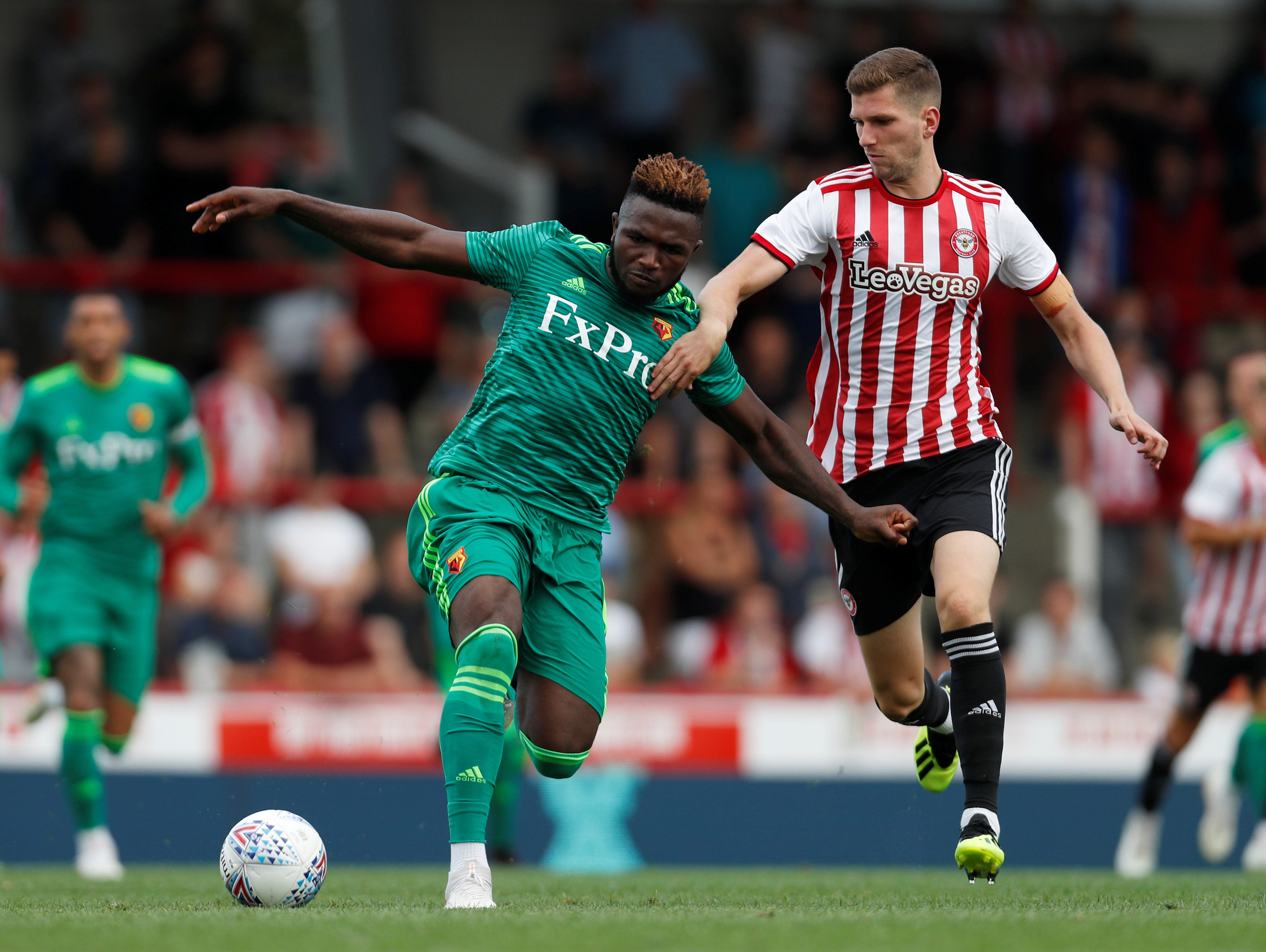
A senior digital director at Reach has defended the company’s regional sports coverage in London after no local reporters attended Brentford FC’s opening game of the season.
Jim Levack, a former Hounslow Chronicle sports journalist who reported on the 4 August game for PA, claimed it was the first time there had been no local media representation at a Brentford FC fixture in its entire professional league history of more than 100 years – calling it a “tragedy”.
Writing on Brentford FC fan blog Beesotted, Levack said: “It’s a damning indictment of the lack of investment in local and regional media, but also a tragedy for the club and its fans at a time when the side’s potential has never been greater.”
David Higgerson, digital editorial strategy director at Reach, has responded with two blogs of his own to defend the work of Football.London, a website launched last year to cover a “gap in the market” for coverage of football clubs in the capital.
Coverage of clubs traditionally linked to Reach’s weekly titles in London have been moved to Football.London over the past 18 months.
The website has dedicated writers for Arsenal, Chelsea, Crystal Palace, Tottenham Hotspurs and West Ham, and a number of other journalists covering the city’s remaining clubs.
Higgerson said: “We consider it a success. It’s profitable, growing rapidly and drawing in a loyal audience. It also tries to be different, and mix what we know works elsewhere in the country with new ideas.”
In response to Levack’s description of Reach’s sports coverage as “insulting and loyalty losing clickbait”, Higgerson said Football.London’s loyal visitors are growing twice as fast as new visitors with newsletter sign-ups “rising sharply”.
He wrote: “Average engaged time per article is rising, and the site delivers dozens of stories a month which we define as high impact – reaching more than 5,000 people and engaging them for more than a minute. And these include many, many news stories.
“When journalists shout ‘clickbait’ they often mean ‘it’s not the way I like it.’ But all the engagement metrics show readers do. And with readers comes sustainability. To get the readers we need, we’ve had to change the way football is covered, and that’s the source of Levack’s discontent.”
Higgerson said the site had had a slow start but that it has been able to double in size and now employs 16 people.
Answering why the website is not attending every local game in the Championship as standard, he said there are more places to get live match coverage than in the past – including using agency copy – and it is crucial to generate page views to generate revenue.
Higgerson said: “So, to create a sustainable, viable future of Football.London, we focus on creating content lots of people want to read, and which lots of people will enjoy. That means being smart with data.
“So is time better spent duplicating the efforts of agencies and other websites, or trying something different and focusing resources where the audiences are greater?
“We believe the latter – and it’s that approach which is behind Football.London’s growth.”
Higgerson added: “The idea that being sat in the press box is an indicator of ability to uncover big stories at a football club, or show real passion in coverage, has been debunked time and again by blogs and digital-only football sites for years.
“Good contacts, good knowledge, a good eye for a story, and a good ear for your audience – that’s what drives good digital journalism.”
He said that site has not “given up” on Brentford FC or any other equivalent club, and that the team will continue experimenting “to bring in more audiences to clubs outside the Premier League, so we can look to hire more people”.
In a second blog responding to further online debate about whether journalists can properly cover a football club without attending each match, Higgerson said being in the press box week-in, week-out is not the only way to be credible.
He added that it is important to respond to the “business realities” because “even essentials need to be paid for”.
Higgerson wrote: “Hand-wringing about losing credibility because we’re not doing things the way we always have done might be cathartic, but it doesn’t change the realities: for any local journalism to survive, it needs to be sustainable.
“It doesn’t matter if you’re a plc, or an independent family company: If you can’t cover your costs, journalism suffers, as fans of Oldham Athletic would surely tell you following the collapse of their daily paper last year.
“My conclusion is that local journalism’s challenge is simple: How do we make sure enough people read what we do to continue to be able to do it the way we think is best? As widely noted on Twitter, for some institutions, we’re maybe too late.”
Reach has previously said: “Brentford’s opening match against Rotherham was covered comprehensively with four separate pieces of coverage – a full transcript of the manager’s press conference ahead of the game, a live blog during the match, a write up of the match highlights, and an analysis of player ratings.
“Brentford FC has its own dedicated section on our Football.London site – a site that’s growing exponentially and is third only to the Manchester Evening News and Liverpool Echo for the size of its football audience.
“We are bringing coverage of Brentford FC to a bigger audience than ever before.”
Picture: Action Images via Reuters/Paul Childs
Email pged@pressgazette.co.uk to point out mistakes, provide story tips or send in a letter for publication on our "Letters Page" blog
